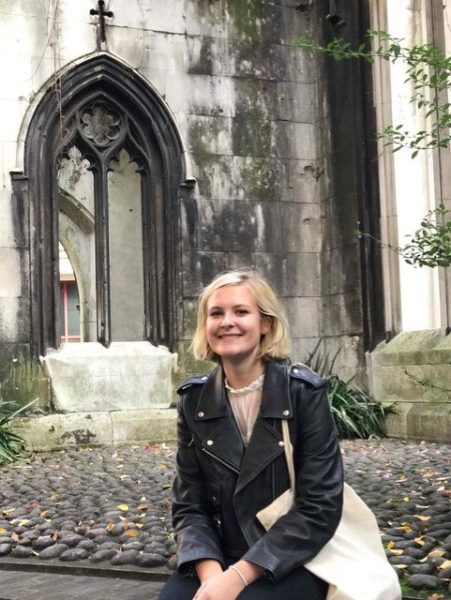
When I entered the class of 2019 at Scripps College, I did not know in the slightest what my future held for me. I simply knew I loved learning about art, film, history, music, photography, and culture. I found that the Art History department at Scripps suited me best, as my professors encouraged me to study many mediums and to always think outside the realm of what is considered “traditional.” My courses with Scripps Professors Mary MacNaughton and Juliet Koss, and Pomona Professor George Gorse, endowed me with invaluable critical analysis skills that I continue to use in my work today. In the summer of 2018, I was hired as the Peggy Phelps Curatorial Intern at the Ruth Chandler Williamson Gallery where I had the chance to curate two exhibitions — a very rare opportunity for an undergraduate student, for which I am very grateful. During my undergraduate career I was also a Curatorial Intern at the Dixon Gallery and Gardens in Memphis, TN.
With the support of the Gabrielle Jungels-Winkler Scholarship, after graduating from Scripps in 2019 I attended the MA in History of Art program at the Courtauld Institute of Art in London. At the Courtauld, I studied Fashion History from 1920-1960 with a small cohort of classmates under Professor Rebecca Arnold. My decision to focus on fashion history has proven to be an invaluable step in my career because the study of fashion allows me to explore all the mediums I have always loved: film, photography, magazines, and even vintage album covers.
My master’s dissertation at the Courtauld focused on Black Power fashions in the early 1970s. Through the lens of the 1972 music festival documentary Wattstax, I explored how Black men and women used fashion to express liberation, respectability, and humor. I found that Black Power fashion allowed Black Americans to express their individual identities and creative liberation, yet Black fashion was still structured by gender roles and power hierarchies. Using historical, fashion, and film analysis, along with Black feminist theory, I argued that Black Power culture as a whole championed new modes of spectacular masculinity for Black men yet limited Black women’s stylistic liberation. The Wattstax documentary was particularly dear to me as the festival featured Black artists from the Stax Record label which was based out of my hometown of Memphis, TN.
I absolutely loved my time in London, and it would not have been possible without the rigorous education and financial support I received from the Scripps community. I now look forward to pursuing a doctoral degree and applying to internships in the interim.

